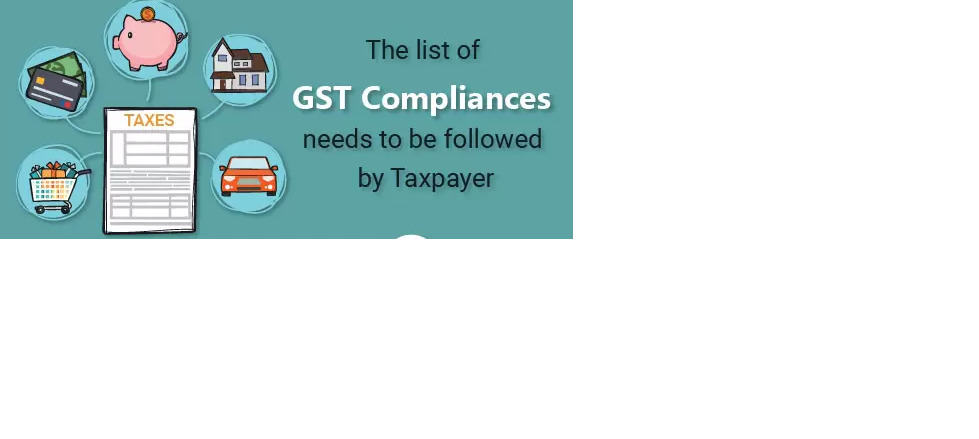
User Intent
The intent behind this article is to inform businesses, tax professionals, and stakeholders about the latest GST compliance updates in India for 2025. It aims to offer a detailed, step-by-step analysis of each change, including definitions, applications, benefits, limitations, comparative insights, and answers to frequently asked questions.
Introduction
As the Indian taxation landscape evolves, staying abreast of compliance changes is crucial for businesses to ensure seamless operations and avoid penalties. The year 2025 brings forth several pivotal updates to the GST system, necessitating a thorough understanding and proactive adaptation.
Definition
The Goods and Services Tax (GST) is a comprehensive, multi-stage, destination-based tax levied on the supply of goods and services across India. Introduced in 2017, it subsumed various indirect taxes, aiming to create a unified taxation system. Compliance under GST refers to adhering to the rules, regulations, and procedures set forth by the GST Council to ensure accurate tax reporting and payment.
To visit https://www.gst.gov.in/
Application in Detail
In 2025, several key compliance changes are being implemented:
1. Mandatory Multi-Factor Authentication (MFA)
What is MFA?
Multi-Factor Authentication adds an extra layer of security by requiring multiple forms of verification before granting access to the GST portal.Business Today+2India Briefing+2IRIS GST+2
Implementation Timeline:
-
January 1, 2025: Mandatory for taxpayers with an Annual Aggregate Turnover (AATO) exceeding ₹200 million.Business Today+3IRIS GST+3India Briefing+3
-
February 1, 2025: Applicable to taxpayers with AATO exceeding ₹50 million.IRIS GST+1India Briefing+1
-
April 1, 2025: Mandatory for all taxpayers, regardless of turnover.Business Today+2India Briefing+2IRIS GST+2
Preparation Steps:
-
Update registered mobile numbers to receive One-Time Passwords (OTPs).India Briefing+1IRIS GST+1
-
Train employees on the new authentication procedures.IRIS GST+1India Briefing+1
-
Enable MFA ahead of deadlines to ensure a smooth transition.India Briefing+1IRIS GST+1
2. Restrictions on E-Way Bill (EWB) Generation
What is an E-Way Bill?
An E-Way Bill is a digital document required for transporting goods valued at ₹50,000 or more. It ensures that goods movement complies with GST regulations.IRIS GST+2India Briefing+2Business Today+2Business Today
New Restrictions:
-
Effective January 1, 2025: EWBs can only be generated for base documents not older than 180 days.Business Today+2India Briefing+2IRIS GST+2
Preparation Steps:
-
Streamline invoicing and logistics processes to align with the 180-day limit.India Briefing+1IRIS GST+1
-
Implement automated reminders for EWB deadlines through compliance software.India Briefing+1IRIS GST+1
3. Limit on E-Way Bill Extensions
New Limitations:
-
Effective January 1, 2025: Total extension period for EWBs capped at 360 days from the original generation date.Business Today+2IRIS GST+2India Briefing+2
Preparation Steps:
-
Optimize supply chain operations to minimize delays.India Briefing+1IRIS GST+1
-
Monitor EWB validity and request extensions only when necessary.India Briefing+1IRIS GST+1
4. Revised Time Limit for E-Invoice Reporting
What is E-Invoicing?
E-Invoicing mandates businesses to generate invoices electronically and report them to the Invoice Registration Portal (IRP) for validation.IRIS GST+1Business Today+1
New Requirement:
-
Effective April 1, 2025: Businesses with AATO of ₹10 crores and above must report e-invoices within 30 days from the invoice date.Business Today+3IRIS GST+3Business Today+3
Preparation Steps:
-
Ensure timely generation and reporting of e-invoices to avoid rejections.
-
Update internal systems to comply with the 30-day reporting window.
5. Update of Harmonized System of Nomenclature (HSN) Codes
What are HSN Codes?
HSN codes are standardized numerical methods of classifying goods, crucial for determining GST rates.IRIS GST
Changes:
-
Effective February 2025: GSTN has issued new advisories detailing changes to HSN reporting in GSTR-1 and GSTR-1A.IRIS GST+1Business Today+1
Preparation Steps:
-
Review and update HSN codes in internal systems to align with the latest advisories.
-
Train staff on accurate HSN reporting to prevent errors.
6. Invoice Management System (IMS)
What is IMS?
Introduced on October 1, 2024, IMS allows taxpayers to validate invoices issued by suppliers, ensuring only verified invoices are part of their GSTR-2B.IRIS GST
Benefits:
-
Enhances accuracy of Input Tax Credit (ITC) claims.IRIS GST+1Business Today+1
-
Reduces errors and improves overall efficiency of GST compliance.IRIS GST
Preparation Steps:
-
Utilize IMS to accept, reject, or defer invoices as necessary.IRIS GST
-
Train relevant personnel on using IMS effectively.
7. Reverse Charge Mechanism (RCM) Time of Supply Rule Changes
What is RCM?
Under RCM, the recipient of goods or services is liable to pay GST instead of the supplier.IRIS GST
Changes:
-
Effective November 1, 2024: Significant changes to RCM rules, impacting how businesses account for RCM transactions and claim ITC.IRIS GST
Preparation Steps:
-
Review and adjust accounting practices to comply with new RCM rules.
-
Ensure timely self-invoicing and accurate ITC claims.
8. Input Service Distributor (ISD) Mandatory Registration
What is ISD?
ISD is a mechanism under GST for businesses with multiple branches to distribute ITC.

